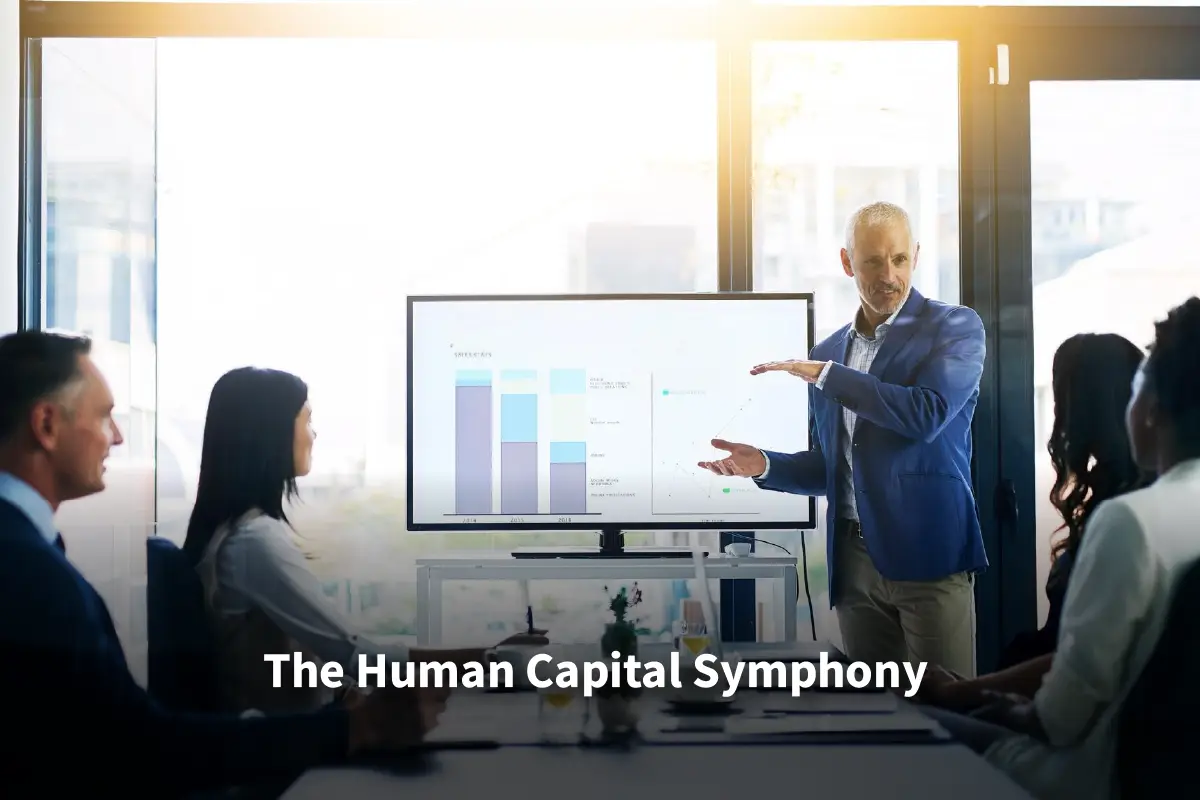For decades, Japan’s corporate world has thrived on three key factors: loyalty, seniority, and teamwork. This model built economic giants. In today’s digital economy, that engine is having a tough time. An aging population, fewer workers, and shifting values are causing a big talent crisis. Research shows that about 35% of university graduates in Japan leave their first job within three years, and the national turnover rate has reached 15.4% overall, with 12.1% among full-time employees. Top talent, especially younger, digitally-native workers, is more mobile and picky. They are no longer content with the old career promise. For business leaders in Japan, the focus has shifted. It’s no longer just about hiring talent. Now, it’s about keeping that talent and helping it grow with passion. The answer may surprise you. It focuses on a human-centered approach to artificial intelligence.
AI and Human Resources technology don’t aim to replace the human touch that’s key to Japanese culture. Instead, they seek to enhance it. It’s about moving from reactive, admin-focused management to proactive, strategic human capital care. This change is key for any organization that wants to survive and grow in the future.
Predictive Analytics for Strategic Retention

AI’s top use in HR is spotting patterns we can’t see. Traditional retention efforts often start too late. They kick in when a valuable employee resigns. By then, counteroffers are expensive, desperate, and often futile. AI-powered platforms can analyze many data points. They examine project engagement and collaboration patterns. They also look at how the tone of communication shifts in emails and surveys. These systems don’t spy. They listen on a large scale and spot early signs of disengagement or flight risk.
Picture a system that notifies a manager when a top team member, even with great performance, stops joining new projects and their connections within the team decline. This opens a key chance for a proactive conversation. The manager can show empathy. This can uncover unmet career growth needs, hidden frustrations at work, or a desire for new challenges in the company. This changes HR from managing exits to supporting continuity and growth. It helps leaders tackle issues before they lead to resignations. This cuts down on expensive hiring. It also keeps valuable knowledge in the company.
Also Read: Can Generative AI and Automation Redefine Global IT Productivity in 2025?
Hyper-Personalized Career Pathing
The one-size-fits-all career ladder is a relic of the past. Modern professionals seek growth paths that align with their skills, dreams, and life goals. It’s impossible for any HR department to create these pathways for thousands of employees. This is where AI becomes a powerful ally in talent growth.
Hitachi, for example, deployed an AI-powered assistant that reduced onboarding time by four days and cut HR involvement from 20 hours to just 12 hours per hire. Smart AI tools connect an employee’s skills to large databases. These include projects, roles, and learning options. The AI makes personalized development plans. It considers performance, completed training, and interests. It might suggest an online course from a partner school to fill a skill gap. It could also recommend a project across departments for gaining experience. Lastly, it may identify a mentor in the global organization. This lets employees take charge of their growth within the company, not outside it. It sends a strong message: ‘We care about you as an individual. We offer the tools to help you shape your future with us.’ This sense of agency and opportunity is a potent antidote to the lure of external offers.
Fostering Fairness and Inclusion
Japan’s uniform corporate culture is slowly changing. Inclusivity is now essential for drawing in global talent. Unconscious bias can affect promotions, pay reviews, and team assignments. This can hurt diversity goals and create feelings of unfairness. As a result, turnover may increase.
AI tools can audit these processes accurately and without bias. Algorithms can scan performance reviews for biased language. They can analyze promotion patterns by demographics to reveal disparities. They also help guarantee fair pay based on role, impact, and experience. Negotiation skills or background won’t affect compensation. The goal isn’t to take away human decision-making. Instead, it’s about giving leaders objective data. This helps them achieve fairer outcomes. When employees see the system as fair, they trust the organization more. This builds loyalty and a sense of shared success. Technological fairness is key to creating a strong, competitive Japanese company in today’s world.
As of 2023, only 16% of Japanese employers were using AI for recruitment, and a 2024 survey revealed that just 24% of organizations had introduced AI at all, while 41% had no plans to do so.
The Human Capital Symphony

It is critical to frame this technology correctly. AI in HR isn’t the conductor of the human capital symphony. It works like advanced sheet music. It tunes the instruments and boosts the concert hall’s sound. It gives leaders, like conductors and top musicians, the data and insights they need to succeed. Final decisions, empathetic talks, and inspirational leadership are all human tasks. Building company culture is also a uniquely human effort. Studies show that AI adoption in HR and operations raises total factor productivity by 2.4%, driven by cost reduction (40%), revenue enhancement (35%), and innovation acceleration (25%).
Using this technology needs careful change management. Transparency is non-negotiable. Employees should understand that these tools help their growth and well-being, not just track them. Data privacy and ethical information use are crucial. We need clear policies and open communication to address these issues.
Japan’s business leaders need to mix tradition with innovation to progress. AI-driven HR tech can boost loyalty, dedication, and continuous improvement (kaizen) in Japanese industry. Using these tools to understand, personalize, and improve the employee experience helps companies gain a strong competitive edge. They can be places where talent feels valued, not just like a cog in a machine. Each person can be on a clear and supported journey. In the quiet fight for talent, those who win will use technology to empower people, not just manage them. The future of Japan’s economic leadership depends on it.







